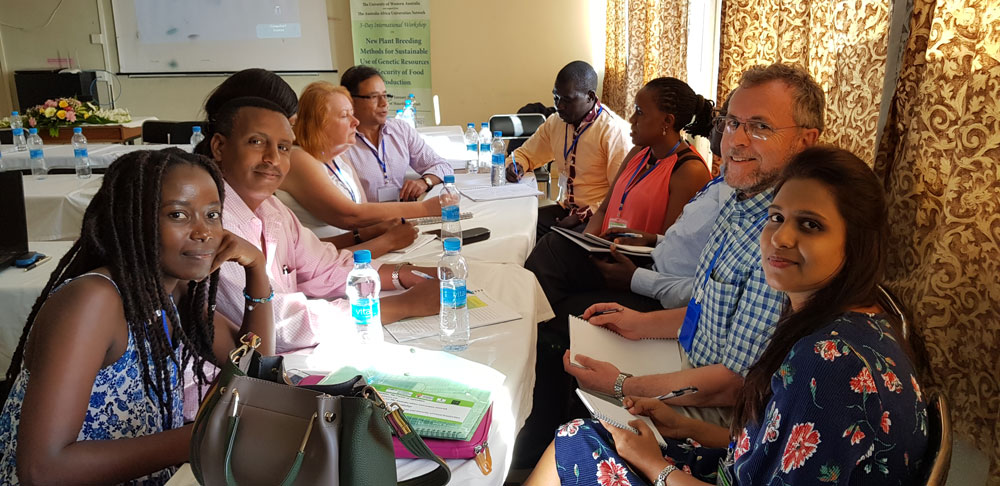

New plant breeding methods for sustainable use of genetic resources and security of food production
April 10, 2018
With the support of The Crawford Fund, Dr Berhanu Fenta attended the New Plant Breeding Methods training program at the University of Mauritius recently, to learn about plant breeding research for sustainable use of genetic resources with a focus on food security in the African region. The training program was funded by the Australia Africa Universities Network (AAUN) and hosted 38 delegates mostly from Africa for three days of workshops and presentations.

The program was led by Prof. Brian Kinghorn from the University of New England (UNE), Prof. Raphael Mrode from the International Livestock Research Institute in Kenya (ILRI) and Prof. Wallace Cowling from the University of Western Australia (UWA). The training focused predominately on applying the animal model to self-pollinating crops, implementing breeding designs, optimising crop breeding to be climate change resilient and maximising opportunities for recombination to accelerate genetic improvement. The training also covered topics like demand led breeding, breeding orphan legumes to survive stressful environments, integration of molecular technologies and adaption of the chickpea to terminal drought.
Talking about his experience, Dr Fenta explained that the training enabled participants to, “learn more about new methods of plant breeding, new technologies and software to support improved breeding practices. It also encouraged participants to create a link between different institutions for further knowledge sharing and collaboration.”
Dr Fenta is well known as a plant breeder and future agricultural innovator in Ethiopia. He works collaboratively across East African countries in grain legume breeding as the National Co-Ordinator of Lowland Pulses at the Ethiopian Institute of Agricultural Research (EIAR). He says that the importance of lowland pulse crops should not be understated, “these varieties are food and nutrition security crops. They are the main source of proteins and minerals for lowland areas of the country.” By increasing pulse breeding production and improving resilience to drought and climate change these regions of African will improve their nutrition and food security.
The training has had a direct impact on Dr Fenta’s current breeding program in Ethiopia. “I’ve found the knowledge gained in this training program to be indispensable,” he said. “As a result of the training program, common bean researchers such as the National Bean Research Program of Uganda, International Centre for Tropical Agriculture (CIAT) and myself are working collaboratively with the University of Western Australia to increase food security through improved breeding practices.”
Innovations in plant bleeding covered in the training program sought to enhance genetic gain and to improve breeding efficiency in the region. Dr Fenta estimates that the, “results of this program will benefit some 4 million smallholder farmers who are directly engaged in lowland pulse production in Ethiopia.”
He went on to say that, “the creation of a link between key researchers in this field across the African region and Australia will improve outcomes for both African and Australian farmers.”
Additional projects are being drafted in response to the opportunity for collaboration between EIAR, Dr Fenton and UWA. With a proposal to the Australian Centre for Agricultural Research (ACIAR) for a project that investigates the reduction of cooking times for Phaseolus beans in development.
“The workshop was a great success, I would like to sincerely thank The Crawford Fund for the opportunity to travel to the University of Mauritius for this training program,” said Dr Fenta.




